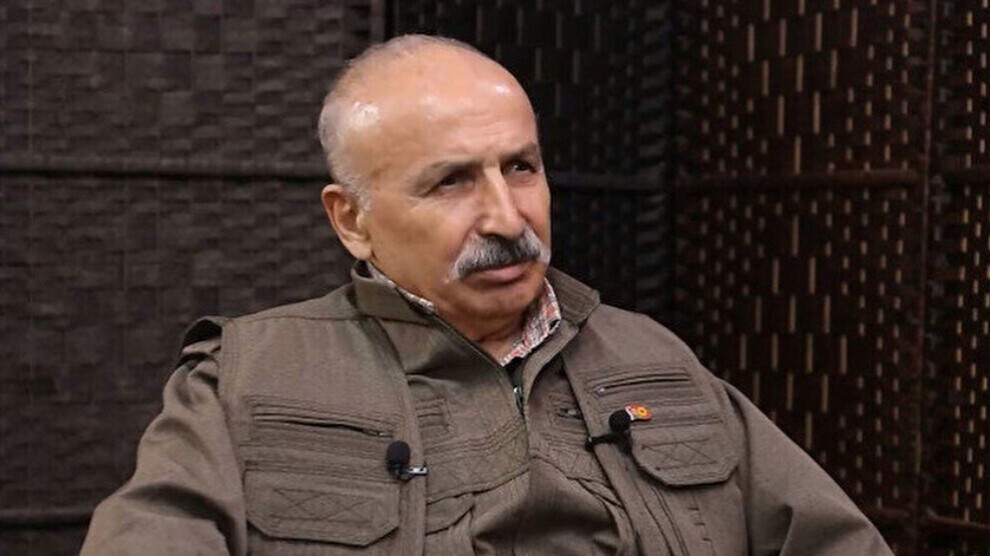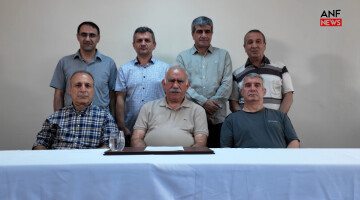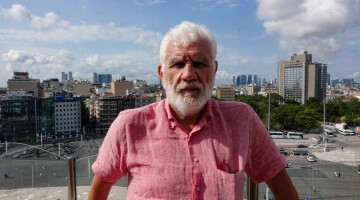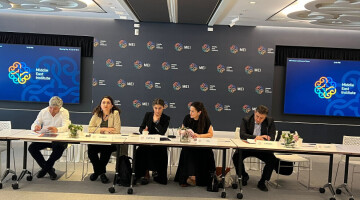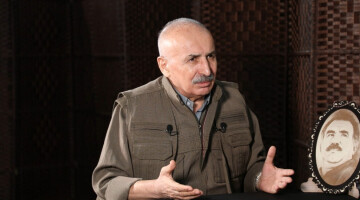Over 46,000 people have been officially confirmed in Turkey, North Kurdistan, Syria. More than 40,000 of them in Turkey alone. According to the Ministry of Environment and Urban Planning, more than 84,000 buildings there have collapsed or have been badly damaged as a result of the 2 earthquakes that struk the area on 6 February. However, the damage is likely to be much more serious, as it is being exposed that the authorities are declaring buildings that are in danger of collapsing as "slightly damaged".
In an ANF interview, Mustafa Karasu, member of the Executive Council of the Kurdistan Community of Societies (KCK), commented on the earthquake and its aftermath. He accused the state of using the disaster as a "weapon" against the people in the region and emphasized that the consequences of the earthquake would have been far more serious than they already are without the action of civil society and social solidarity. The epicenter of the earthquakes was in Maraş), a Kurdish-Alevi region in which mass emigration was triggered by the pogrom of 1978. Karasu warned that depopulation should continue now as a result of the way the government is dealing with the aftermath of the earthquake.
"The reason for the scale of the disaster is the prevailing politics"
The earthquakes of 6 February are among the worst natural disasters experienced in the country or the last century. But the catastrophe affecting Turkish, Kurdish and Syrian cities did not come out of the blue. Turkey is geologically considered to be extremely endangered anyway. Mustafa Karasu emphasized this and criticized the fact that urgent warnings from experts have been ignored for years. “The fact that the earthquake turned into a catastrophe of this magnitude is due to the prevailing policies that have been followed to this day. This state was not prepared for the earthquake and completely underestimated the situation at the beginning.”
Instead of concentrating on quick help for the earthquake victims, Ankara was mainly concerned with saving its face. The Turkish President called the earthquake a ‘plan of fate’. Karasu said: “The government claimed that the 'Republican Alliance' [AKP-MHP regime electoral alliance] was everywhere to help the population and the State Disaster Management Agency AFAD said its rescue teams were deployed in all affected areas. But what people experienced was just the opposite. The state forces were neither prepared nor did they correctly assess the extent of the disaster. Because the catastrophe was underestimated. Timely mobilization for the disaster areas was not ordered. And this, inevitably, became a catastrophe within the catastrophe. Because the most important thing was intervening in the first two days after the seism. If nothing is done in the first two to three days, deaths will inevitably increase. And so it happened. AFAD went into the cities, cleared some ruins and attempted rescues. Heavy equipment for search and rescue operations had only started working on the third day after the earthquake.
“Only civil society helped”
According to Karasu, the rescue work by the state was only carried out on a small number of buildings. He said the authorities were not organized and added: “The state did not have the organizational potential or the power to invest in this work. That's why no one will care about the thousands of buildings in ruins for a long time. Even large-scale search operations did not take place at all for days, important hours were wasted. Of course, from day one, volunteers and the civil society tried to dig people out of the rubble with picks and shovels and then take care of them.”
Karasu assumed that only a few of those buried could be rescued. “Without the volunteers, without civil society, without the search and rescue teams from a few communities, without the efforts of some parties and organizations, the consequences of this earthquake would have been far more serious. In fact, such a government would have already collapsed. In reality, it was the volunteers who saved this government. It was civil society organizations. Mostly, Alevi Kurds live west of the Euphrates. The HDP, the Cem houses helped, the civil society organizations and young volunteers, mainly from the big cities, rushed to the region. They prevented the situation from getting worse. That must be clear to everyone.”
"The state uses its forces for war"
Rescue work carried out selectively by state institutions was taking place in the cities, but nothing like this happened in the villages. This approach has led to a massive increase in deaths, said Karasu, adding: “We know this state. The people know it. Thousands of police officers are deployed against a handful of protesters. The state then behaves like a bull in front of a red flag and attacks. If it encounters the guerrillas in the mountains, it immediately deploys dozens of helicopters and drones, hundreds of special vehicles and thousands of soldiers. For war, it mobilizes all its strength. But when it comes to rescuing the population from an earthquake and saving lives, the state does nothing. Because this state was set up to be against the people and designed and formed on the basis of the principles of oppression and repression. It is designed for war, for the oppression of the Kurdish people. This state is a totally militaristic state.”
"The state is hiding the true extent of the death toll"
The state is organized for war and, therefore, it is not in a position to provide real disaster relief. Karasu quoted experts who said that there could be 200,000 deaths in the end, as they suspect that countless bodies are still under the rubble. In the event of an earthquake, assistance in the first three days is crucial, as people can usually survive without water for around 72 hours. In many places, however, help arrived much later, Karasu underlined, adding: “The state wants to hide the real number of victims and does not help the survivors either. In the first three days, people died not only from hunger and thirst, but also from the cold. They fight for survival in such cold temperatures - up to minus 20 degrees - and are exposed to the risk of frostbite. In such wintry conditions, blankets and tents alone cannot protect people. Containers are needed to protect victims against the cold. If there are no containers, then at least ovens must be set up. This is absolutely necessary. Tents or blankets alone are not enough. But in the first few days after the quake, there wasn't even that."

